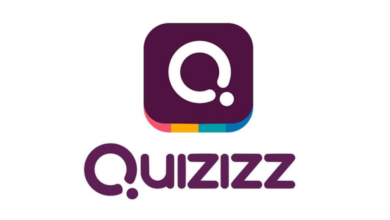Understanding Ally Charitable Financial Planning: A Guide to Strategic Giving

What is Ally Charitable Financial Planning?
Ally charitable financial planning represents a specialized approach to financial management that emphasizes philanthropy and strategic giving. Unlike traditional financial planning, which primarily focuses on wealth accumulation and investment management, ally charitable financial planning centers on the essential goals of charitable giving and partnership-based initiatives with nonprofits. This distinctive model aims to empower individuals and organizations to make a meaningful impact within their communities while optimizing their financial resources to achieve both personal and charitable aspirations.
At its core, ally charitable financial planning promotes collaboration between donors and charitable organizations. This partnership approach fosters a deeper understanding of the needs and objectives of nonprofits, allowing for tailored strategies that can maximize the benefits of financial contributions. By aligning the donor’s financial goals with their philanthropic desires, the process encourages a more integrated strategy that not only enhances the effectiveness of the donations but also enriches the overall giving experience.
Central to ally charitable financial planning are several guiding principles. First, it emphasizes customized solutions that take into account the unique circumstances of the donor. This entails a comprehensive assessment of the donor’s financial situation, philanthropic interests, and long-term objectives to create personalized giving strategies. Furthermore, this type of financial planning recognizes the importance of continuing education and transparency, ensuring that donors are informed about the potential impacts of their contributions. By facilitating ongoing communication between donors and nonprofits, ally charitable financial planning nurtures trust and accountability in the giving process.
Overall, ally charitable financial planning serves as a progressive framework for individuals seeking to blend their financial management with their desire to create positive social change, ensuring their philanthropic activities align seamlessly with their financial goals.

Benefits of Ally Charitable Financial Planning
Engaging in ally charitable financial planning offers a multitude of benefits for both individuals and organizations, particularly in the realm of philanthropic endeavors. One of the most significant advantages is the tax benefits that come along with charitable donations. Through conscientious planning, donors can maximize their tax deductions, which not only reduces their taxable income but also enhances their overall financial strategy. This allows them to allocate more resources towards causes they care about, thereby increasing their impact.
Furthermore, ally charitable financial planning enables donors to make strategic donations that are more effective. By focusing on organizations that align closely with their values and missions, individuals can ensure that their contributions are making a genuine difference. For instance, a family foundation that analyzes the effectiveness of various nonprofits before allocating funds is likely to witness a higher return on investment concerning community impact. This targeted approach fosters not only higher levels of engagement but also long-term partnerships with charitable organizations.
Moreover, involving communities in the planning process enhances relationships with the causes at hand. When donors attend community meetings or consult local leaders, they can better understand the needs and challenges within those communities. This engagement fosters a sense of trust and collaboration, ultimately leading to a more profound impact. A case in point is a corporation that partnered with local charities to create a scholarship fund, which not only provided financial assistance but also cultivated relationships with beneficiaries and their families. Such alliances demonstrate how ally charitable financial planning can lead to stronger community ties and improved philanthropic outcomes, ensuring that initiatives are sustainable and aligned with local needs.
Steps to Implement Ally Charitable Financial Planning
Implementing ally charitable financial planning involves a series of strategic steps designed to optimize your charitable contributions while aligning them with your financial goals. The first step is to assess your personal financial situation. This entails taking a comprehensive look at your income, expenses, assets, and liabilities. Understanding your financial health provides a foundation upon which you can establish your charitable giving framework, ensuring that your contributions are sustainable and responsible.
Next, it is essential to identify your charitable interests. Reflect on the causes that resonate with you the most, whether it is education, healthcare, the environment, or social justice. This clarity will not only enhance your giving experience but also ensure that your contributions have a meaningful impact. Engaging in research about various organizations within your areas of interest will aid in identifying those with a strong track record of transparency and effectiveness.
Once your charitable interests are defined, the next step is to set specific goals for your giving. This involves determining how much you wish to contribute annually and considering the timeline for your donations. Setting goals creates a structured roadmap for your charitable endeavors, making it easier to review and adjust as circumstances change.
The selection of the right charitable vehicles is critical in ally charitable financial planning. Options such as donor-advised funds, charitable remainder trusts, and private foundations each have unique benefits and potential tax implications. Engaging with a financial advisor can provide valuable insights into which vehicle aligns best with your financial situation and charitable objectives.

Finally, ongoing communication and collaboration with the charitable organizations you support is vital. Establishing a relationship with these organizations allows you to monitor the impact of your contributions and adjust your strategy as needed. Effective ally charitable financial planning is not a one-time effort but an ongoing engagement aimed at maximizing the positive outcomes of your giving.
Common Challenges and Solutions in Ally Charitable Financial Planning
Engaging in ally charitable financial planning often comes with its fair share of challenges. One of the most common obstacles donors face is decision fatigue. With numerous charitable options available, many individuals experience overwhelm when trying to determine where their contributions will have the greatest impact. A practical solution to this is to establish clear philanthropic goals that align closely with one’s values. This approach not only simplifies decision-making but also enhances the sense of purpose behind charitable giving.
Another significant challenge lies in aligning philanthropic goals with personal values. Often, donors may feel conflicted between the causes they are passionate about and those that may be more socially accepted or recognized. To overcome this, it is advisable for donors to engage in reflective practices, such as journaling or discussions with trusted advisors, to clarify what truly matters to them. This introspection can foster more meaningful engagement in ally charitable financial planning that resonates with their core beliefs.
Moreover, potential legal or tax complications can deter individuals from maximizing their charitable contributions. Navigating these complexities requires a collaborative approach. Engaging with a financial advisor who specializes in charitable planning can provide insights into tax benefits and legal implications, ensuring that donors remain compliant while maximizing their philanthropic impact. In some cases, testimony from successful donors illustrates the effectiveness of this strategy. For instance, one individual reported, “Working with my financial advisor not only streamlined my giving but also uncovered new avenues for supporting causes close to my heart.”
By identifying these common challenges and employing actionable solutions, donors can enhance their experience of ally charitable financial planning. This mindful approach fosters stronger alignment between their giving and personal values, ultimately leading to more strategic and impactful charitable contributions.




